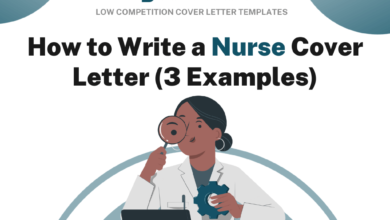26 مثالاً مدعومًا من خبراء لحل المشكلات بفعالية

It seems like you’ve shared a comprehensive article about problem-solving skills, their importance in the workplace, and how to effectively communicate these skills during interviews. The content includes various examples of problem-solving scenarios, tips for improving these skills, and guidance on how to answer interview questions using the STAR method.
If you have specific questions or need assistance with a particular aspect of this topic—such as crafting your own examples, preparing for an interview, or understanding certain concepts—please let me know! I’m here to help.It seems like you’ve shared a detailed article or content piece about problem-solving skills, particularly in the context of job interviews. The text outlines various scenarios using the STAR (Situation, Task, Action, Result) method to illustrate how to effectively communicate problem-solving experiences during interviews.
Here’s a brief summary and some key points from your content:
Summary:
The article emphasizes the importance of showcasing problem-solving skills in professional settings, especially during job interviews. It provides structured examples using the STAR method to demonstrate analytical thinking, critical thinking, decision-making, communication (teamwork), and persistence.
Key Points:
- STAR Method:
– Situation: Describe a specific situation where you faced a challenge.
– Task: Explain your responsibility in that situation.
– Action: Detail the actions you took to address the challenge.
– Result: Share the outcomes of your actions and any quantifiable results.
- Examples of Problem-Solving Skills:
– Analytical Thinking: Identifying root causes through data analysis.
– Critical Thinking: Assessing situations quickly and devising solutions under pressure.
– Decision Making: Making informed choices that align with project goals while maintaining team cohesion.
– Communication (Teamwork): Improving inter-departmental communication to enhance collaboration and efficiency.
– Persistence: Continuing efforts despite setbacks until achieving desired outcomes.
- Improving Problem-Solving Skills:
– Analyze past problems and solutions for learning opportunities.
– Stay calm under pressure; take time to think before reacting impulsively.
- Tailoring Responses for Interviews:
Focus on relevant skills mentioned in job descriptions when crafting responses about past experiences related to problem-solving.
- Quantifying Achievements:
Use specific numbers or metrics when discussing accomplishments related to problem-solving—this makes achievements more impactful.
- Interview Preparation Tips:
Understand what interviewers are looking for regarding leadership abilities, collaboration skills, etc., rather than just detailing problems faced.
This structured approach not only helps candidates prepare for interviews but also enhances their overall ability to tackle challenges effectively in their careers. If you need further assistance or specific information extracted from this content or have other questions related to it, feel free to ask!It looks like you’ve shared a detailed document that outlines various problem-solving scenarios, skills, and tips for improving those skills. Here’s a summary of the key points from your content:
Key Problem-Solving Scenarios
- Workaround Solution:
- Situation: Faced with potential project delays.
– Task: Meet the project deadline to avoid penalties.
– Action: Developed a workaround solution.
– Result: Met the deadline and saved $100,000 in penalties.
- Decision Making:
- Situation: Conflict between two team members on project direction.
– Task: Make a decision that aligns with project goals and maintains cohesion.
– Action: Facilitated a meeting to understand both perspectives and made an informed decision incorporating elements from both sides.
– Result: Resolved conflict and enhanced collaboration within the team.
- Communication (Teamwork):
– Situation: Miscommunication causing delays in cross-functional projects.
– Task: Improve communication channels among departments.
– Action: Initiated regular meetings and implemented a centralized communication platform.
- Result: Reduced project completion time by 30%, saving $25,000.
- Persistence in Sales Efforts:
– Situation : Encountered rejections while pursuing a major client deal during tough sales quarter
– Task : Persistently pursue the client despite setbacks
– Action : Maintained regular communication, addressed concerns, adjusted approach based on feedback
– Result : Closed deal after months of effort; exceeded sales targets by 25%, generating $250,000 revenue increase
Tips to Improve Problem-Solving Skills
- Analyze problems thoroughly before acting; avoid impulsive decisions—employers value data-driven approaches.
- Use specific metrics when discussing achievements (e.g., efficiency boosts or cost savings) to make accomplishments stand out.
- Reflect on past solutions to identify what worked well or didn’t; this helps refine future problem-solving strategies.
- Enhance research and analytical skills; improve communication with relevant stakeholders for better collaboration.
- Practice staying calm under pressure—take breaks if needed—to think logically rather than reactively during stressful situations.
- Prepare examples of your problem-solving abilities for interviews using these strategies to impress potential employers.
Conclusion
By showcasing specific examples of successful problem-solving experiences along with quantifiable results, you can effectively communicate your capabilities in interviews or professional settings while continuously working on enhancing these essential skills throughout your career journey.
If you need further assistance or have any specific questions about this content or related topics, feel free to ask!




